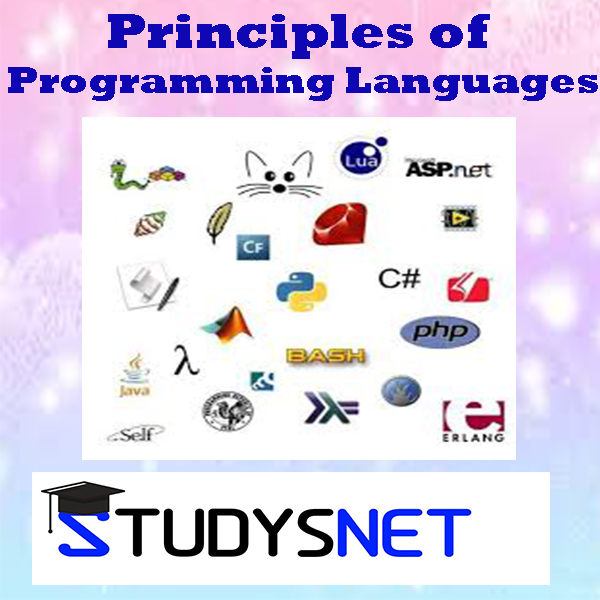Principles of Programming Languages free videos and free material uploaded by Ramanjaneyulu K .
OBJECTIVES:
- <!--[endif]-->To understand and describe syntax and semantics of programming languages
- <!--[endif]-->To understand data, data types, and basic statements
- <!--[endif]-->To understand call-return architecture and ways of implementing them
- <!--[endif]-->To understand object-orientation, concurrency, and event handling in programming languages
- <!--[endif]-->To develop programs in non-procedural programming paradigms
UNIT- I:
Syntax and semantics: Evolution of programming languages, describing syntax, context, free grammars, attribute grammars, describing semantics, lexical analysis, parsing, recursive - decent bottom - up parsing
UNIT- II:
Data, data types, and basic statements: Names, variables, binding, type checking, scope, scope rules, lifetime and garbage collection, primitive data types, strings, array types, associative arrays, record types, union types, pointers and references, Arithmetic expressions, overloaded operators, type conversions, relational and boolean expressions , assignment statements , mixed mode assignments, control structures – selection, iterations, branching, guarded Statements
UNIT- III:
Subprograms and implementations: Subprograms, design issues, local referencing, parameter passing, overloaded methods, generic methods, design issues for functions, semantics of call and return, implementing simple subprograms, stack and dynamic local variables, nested subprograms, blocks, dynamic scoping
UNIT- IV:
Object- orientation, concurrency, and event handling: Object – orientation, design issues for OOP languages, implementation of object, oriented constructs, concurrency, semaphores, Monitors, message passing, threads, statement level concurrency, exception handling, event handling
UNIT -V:
Functional programming languages: Introduction to lambda calculus, fundamentals of functional programming languages, Programming with Scheme, – Programming with ML,
UNIT -VI:
Logic programming languages: Introduction to logic and logic programming, – Programming with Prolog, multi - paradigm languages
OUTCOMES:
- <!--[endif]-->Describe syntax and semantics of programming languages
- <!--[endif]-->Explain data, data types, and basic statements of programming languages
- <!--[endif]-->Design and implement subprogram constructs, Apply object - oriented, concurrency, and event handling programming constructs
- <!--[endif]-->Develop programs in Scheme, ML, and Prolog
- <!--[endif]-->Understand and adopt new programming languages
- Unit-1 Principles of Programming Languages lecture notes
- Unit-2 Principles of Programming Languages lecture notes

- 0 Reviews
- 23 Students
- 73 Courses

Write a public review